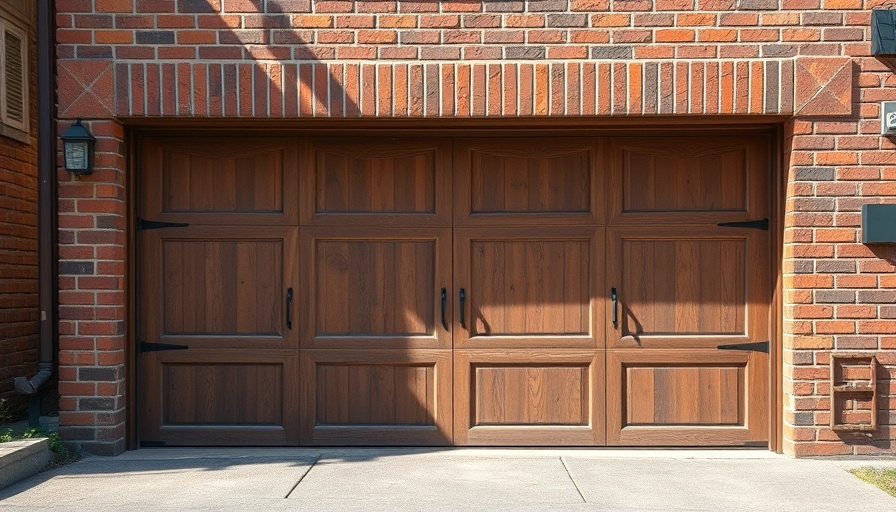
Understanding Common Garage Door Troubles: A Homeowner’s Guide
As a homeowner, encountering issues with your garage door can feel frustrating, especially when it interrupts your daily routine. From unexpected noises to doors that refuse to open or close, garage doors can pose several challenges. However, many of these common problems can be easily diagnosed and resolved with some basic knowledge and a few simple tools. In this guide, we’ll explore eight prevalent garage door issues and provide practical, DIY solutions to help you restore seamless functionality to your home.
1. The Garage Door Opener Remote Isn't Working
One of the most common hassles homeowners face is a non-responsive garage door opener remote. When you press the button and nothing happens, several factors could be at play. A depleted battery is often the culprit, but issues with wiring or a faulty keypad can also prevent your door from responding.
Ultimate Solution: Try changing the batteries first. If that doesn’t work, test your remote from different angles or distances. If it's still unresponsive, check the wiring connections as detailed in your user manual. Ensuring that everything is functioning correctly helps you avoid unnecessary repairs.
2. Noisy Garage Door Operations
Loud creaking or grinding noises can be both annoying and indicative of underlying issues with your garage door. This noise typically results from a need for lubrication, loose components, or worn-out parts.
Ultimate Solution: First, start by lubricating all moving parts, including rollers, hinges, and the opener mechanism, with a silicone-based lubricant to minimize noise. Tightening any loose bolts is crucial, too. If the noise persists, consider consulting a professional about possible parts replacement.
3. Doors That Refuse to Move
When your garage door simply won’t budge, it can feel like a major inconvenience. Occasionally, this could be a sign of misaligned or obstructed tracks, or issues with the sensors at the base of the door.
Ultimate Solution: Begin with checking the tracks for debris. Clear out any obstructions and ensure that nothing is obstructing sensor performance. An inspection of wiring connections and recalibrating the sensors can often resolve these problems without the need for drastic measures.
4. Uneven Opening or Closing
If your garage door opens or closes unevenly, it could be a result of broken springs or misaligned components. This not only makes for an inconvenient experience but can also pose safety risks.
Ultimate Solution: Inspect the tension on your garage door’s springs and ensure they are balanced. However, be cautious: if you notice a broken cable or spring, it’s usually best to call in a professional.
5. Garage Door Reverses Before Closing
If your garage door starts to close and then suddenly reverses, it's likely due to malfunctioning sensors or issues with the door’s track.
Ultimate Solution: Check for dirt or debris obstructing the sensor lenses or the operating tracks and clean them thoroughly. Additionally, adjusting the close-force settings as per your garage door manual might help. This adjustment helps reduce unnecessary reversals due to perceived obstruction.
6. Visual Inspection of Cables and Tracks
Regular monitoring of cables and tracks can prevent larger issues down the line. It's essential to ensure that these components are in good condition, as they are critical to operation.
Ultimate Solution: Look for any visible damage like fraying cables or warped tracks. Addressing these issues proactively not only enhances safety but also helps maintain the integrity of your entire garage door system.
7. Emergency Release Not Working
The emergency release feature allows you to manually operate the garage door during power outages. However, if this component is malfunctioning, it can hinder your access.
Ultimate Solution: Test your emergency release system periodically to ensure it works seamlessly in case of an emergency. Maintaining this feature can save you frustrations in critical situations.
8. Professional Help: When to Call the Experts
While this guide covers many common issues that can be resolved through DIY solutions, some situations are best left to experienced professionals. For instance, dealing with high-tension springs or significant electrical malfunctions requires specialized knowledge and tools.
Ultimate Solution: Always err on the side of caution. If you encounter persistent problems or feel uneasy about handling repairs, seek assistance from a qualified technician.
Taking Charge of Your Garage Door Maintenance
Understanding these common garage door problems and their solutions empowers homeowners to take a proactive approach to maintenance. With a bit of attention and care, you can ensure your garage door remains a reliable aspect of your home’s security and convenience.
Having the knowledge to diagnose and resolve problems not only saves you time and money but can also provide peace of mind in knowing you can tackle these challenges head-on.
To stay updated on the latest DIY tips and home maintenance advice, subscribe to our newsletter or join our community forum for discussions and assistance from fellow homeowners!
 Add Row
Add Row  Add
Add 




Write A Comment